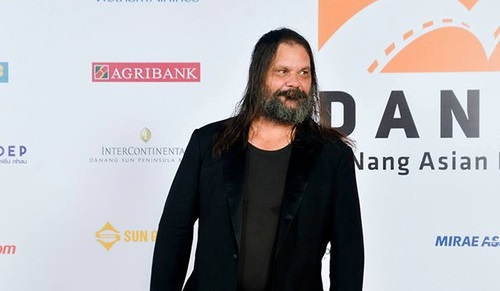Trần Khánh An
The global cinema landscape has increasingly turned its attention towards Asia in recent years. Films with Asian themes, such as Parasite and Everything Everywhere All At Once, have won major awards at the Oscars, highlighting the growing interest in Asian content within the global film industry.
Filmmakers and film experts spoke to Việt Nam News about the emergence of Asian cinema and the potential of Vietnamese filmmaking.
Diverse voices
Tunku Mona Riza, a prominent Malaysian film director and producer, emphasised the rich cultural diversity of Asia. Speaking to Việt Nam News, she noted that "Asia is a region with complex layers of culture”.
“Việt Nam, Malaysia, or Indonesia – all Asian countries have strong cultures. There are countless stories and narratives we can tell through films, which are incredibly inspiring to the Western world,” Tunku Mona said.

Australian film director, screenwriter and cinematographer Warwick Thornton. His work often explores themes pertinent to Indigenous Australian culture and experiences. Photo courtesy of DANAFF
Warwick Thornton, one of Australia’s leading contemporary filmmakers, expressed his excitement about exploring the diverse voices within the region. Reflecting on his participation in the Đà Nẵng Asian Film Festival, a young festival in Việt Nam, Thornton noted that "while big film festivals are powerful, they can sometimes be boring”.
“I prefer small film festivals, which are more intimate. The films showcased here may have smaller budgets and no big stars, but the quality is excellent, representing different voices – an important aspect of cinema. I am always drawn to the variety of voices and stories in film.”
Thornton said that the European and American film industries might be somewhat apprehensive about the rise of Asian cinema.
“This is a powerful region with a huge market. American filmmakers need to understand that they cannot simply impose their narratives here. They should engage with the market, watch Asian films, and listen to the voices of the people to understand the audience better and refine their storytelling accordingly.”
Universal stories
Sasha Chuk, a young and talented filmmaker from Hong Kong, China, initially believed that international audiences might not fully grasp the nuances of immigration and family dynamics in Hong Kong.
“My first feature film, Fly Me To The Moon, is a very local story about a family that migrated from Hunan to Hong Kong, and I was worried that international audiences might not understand,” Chuk said.

Sasha Chuk is a Cantonese writer, screenwriter, director and actress from Hong Kong, China. Photo courtesy of Golden Scene
However, she realised her concerns were unfounded.
“This is a story about a father-daughter relationship – a universal theme that resonates with people worldwide. Ultimately, it’s about family, and every audience can relate to that.”
Filipino director Joselito Altarejos, known for his groundbreaking films on LGBTQ themes, also drew inspiration from universal human stories.
“In 2014, I realised that the fight for LGBTQ rights is part of the broader struggle for human rights,” he said, expanding the scope of his filmmaking.
In his latest film, Guard of Honour, Altarejos offered a powerful perspective on patriarchy and toxic masculinity within family dynamics.
“Filipino filmmakers and I often ask ourselves why we create art. We aim to give a voice to the voiceless through our films.”
Unlocking Việt Nam’s potential
No matter where a film originates, if it tells the story of the unheard and expresses universal human themes, it deserves recognition. The growing attention on Asian cinema presents a unique opportunity for Vietnamese filmmakers to share their stories and perspectives.
The increasing presence of authentic voices in Vietnamese cinema enriches global understanding of Việt Nam, portraying it as a centre of meaning-making rather than a country defined by external assumptions.
Jared Dougherty, vice president and director of Public Policy and External Affairs at Sony Pictures Entertainment Asia-Pacific, told Việt Nam News: “More and more Asian countries are looking for films that convey authentic connections to their origins while resonating on a human level.”

Trịnh Đình Lê Minh is a filmmaker, educator and a Fulbright scholar. He has been active in the film industry since 2010, making a significant impact with his documentaries, and short films, as well as feature films. Photo courtesy of the director
With extensive experience in studying and making films abroad, Vietnamese filmmaker and educator Trịnh Đình Lê Minh said he believed that Vietnamese filmmakers should not be overly concerned about their films being challenging for international audiences.
“When a film’s cinematic language is both powerful and intimate, there is no language barrier. A film can engage audiences from diverse cultural backgrounds as they recognise themselves in it and learn something new,” Minh said.
Tunku Mona added that the governments of Asian nations should adopt a more supportive stance towards the arts and film industries.
“Arts and films can generate significant income, boost tourism, and offer many other benefits. If our governments fully support the arts and film industries, they can become a major product of our countries, and Southeast Asian films can achieve great success on the global stage.” VNS
OVietnam